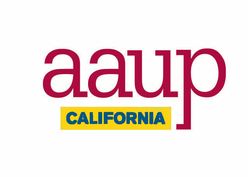Coronavirus Relief Package. Last week, President Biden signed into law a $1.9 trillion coronavirus relief package, which includes an additional $40 billion in aid for higher education. Institutions must spend about half of the money to help struggling students with living expenses and the technology needed for remote classes. It is still unclear whether undocumented and international students will be eligible for relief. The law also provides dedicated support to historically Black colleges and universities, tribal colleges and universities, Hispanic-serving institutions, and other minority-serving institutions to address the disproportionate effect of the pandemic on those institutions and the students they serve. The AAUP, along with coalition partners, is advocating for a New Deal for Higher Education that would significantly reinvest in our nation’s colleges and universities.
Graduate Employee Unionization. In a major victory for graduate employees at private universities, the National Labor Relations Board (NLRB) announced last week that it was withdrawing a rule proposed in late 2019 that would have barred graduate assistants from engaging in union organizing and collective bargaining under the protection of federal law. The AAUP has long supported the bargaining rights of graduate employees and has submitted amicus briefs in cases on this issue as well as submitting comments opposing the 2019 proposed rule and demonstrating both that graduate assistants are employees with the right to unionize under the NLRA and that unionization advances their academic freedom.
Deferred Action on Childhood Arrivals (DACA) and Immigration Reform. As one of its first acts, the Biden administration issued an executive order to preserve and fortify the DACA program, which allows undocumented immigrants brought to the United States as children to remain in the country legally and expands access to higher education by providing eligibility for in-state tuition and state-funded grants and loans to participants. In 2017 the Trump administration sought to terminate the DACA program, despite overwhelming opposition to this move from the higher education community. Lower courts prevented the termination of the program, and ultimately the US Supreme Court, in a case in which the AAUP joined an amicus brief supporting the DACA program, found that the Trump administration’s attempt to terminate the program was unlawful and allowed it to stand.
The Biden administration has also proposed comprehensive immigration reform legislation to strengthen and improve the immigration system, including expanding and making permanent the DACA program and providing a pathway to citizenship for Dreamers. The legislation could also ease the enrollment of international students, as the AAUP has advocated.
Travel Bans. On Inauguration Day, President Biden also repealed various travel bans that barred or severely limited the ability of students, exchange scholars, and other visitors from a number of predominantly Muslim countries from entering the United States. The Trump administration had issued four orders banning travel from certain countries. The AAUP and the higher education community overwhelmingly opposed the travel bans, and courts prevented the implementation of the first three. However, in a case in which the AAUP joined an amicus brief in opposition to the travel bans, the US Supreme Court upheld the fourth version of the ban in 2018. The Biden administration’s proclamation revokes the travel bans, finding that they are “a stain on our national conscience and are inconsistent with our long history of welcoming people of all faiths and no faith at all.”
LGBTQ Discrimination. Another executive order issued on Inauguration Day extends federal nondiscrimination protections to discrimination based on gender identity or sexual orientation. The order builds on the Supreme Court’s landmark 2020 ruling in Bostock v. Clayton County, Georgia; the AAUP joined an amicus brief in this case, arguing that workplace discrimination based on LGBTQ status is unlawful. In the case, the Supreme Court extended protection of a federal law banning employment discrimination based on sex to individuals who identify as lesbian, gay, bisexual, or whose gender identity differs from their sex assigned at birth. Reversing the Trump administration’s approach, the Biden order extends this protection to discrimination based on sex forbidden by Title IX and other federal anti-discrimination statutes and regulations.
Race in Admissions. On February 3, the Biden administration dropped a lawsuit brought by the Trump administration against Yale University that had accused Yale of discriminating against white and Asian American applicants in its admissions process. This lawsuit was one of many brought in a concerted effort to end the consideration of race in college admissions. The AAUP has repeatedly joined amicus briefs supporting the ability to use race as one factor in university admissions. While the dropping of this suit indicates that the administration will take a more balanced approach to the issue, private parties are seeking to bring a case to the US Supreme Court in efforts to outlaw such consideration.
Racial Equity. Last fall, the Trump administration ordered federal agencies and federal contractors (potentially including colleges and universities) to end trainings that address topics like white privilege and racism. The AAUP and many others in the higher education community spoke out about bans on racial equity training. President Biden reversed the Trump order and replaced it with a new executive order requiring federal agencies to assess their equity and diversity activities.
Student Debt. With coalition partners, the AAUP is calling for the cancellation of student debt for borrowers who have unjustly shouldered the burden of financing higher education the last forty years. The Department of Education has extended through September 2021 a moratorium on federal student loan payments. In response to concerns that debt cancellation could trigger damaging tax consequences for borrowers, last week’s coronavirus relief law includes a provision that says if student debt is cancelled, the value of the amount forgiven will not be taxed by the federal government.
Far more work remains to be done, but we are heartened by these first steps and look forward to continuing to advocate for equity and access in higher education.


 RSS Feed
RSS Feed